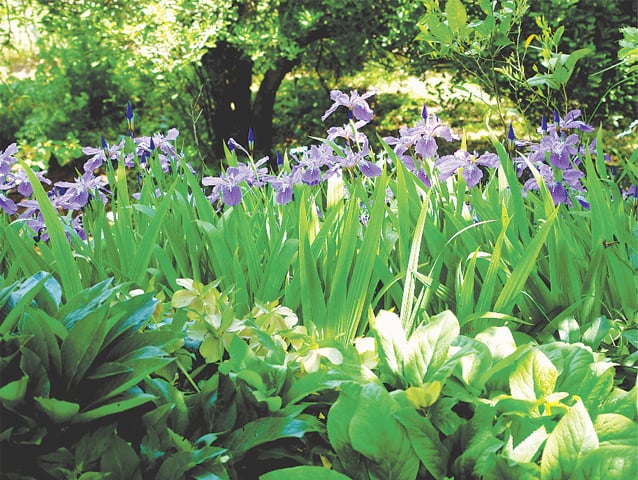
As potable water becomes increasingly precious, when, how and if to water the garden are issues that must be treated with the seriousness they deserve.
Ordering yet another expensive water tanker is — for those with more money than sense — certainly not a sustainable solution; it is rather a totally selfish, even immoral act which takes essential water out of the mouths of the less fortunate and impoverished amongst us. The sight and scent of a recently watered lush green lawn increases the cracked-lip thirst of disadvantaged people daring to glance in.
Senseless wastage of water is long ingrained in our society and must be stopped in its tracks right now, and where better to bring it to a halt than in the garden. Giving the mali instructions to water everything in sight, thus awarding him the task of flooding lawns, ornamentals and vegetable beds via a hosepipe at full throttle is just one obvious example of an incredibly wasteful practice that simply has to stop.
Saving water in the garden by using tips and techniques is just as important as saving it in the home
There are more, especially given the increasingly abysmal water situation, sensible ways to water the garden than with hosepipes which should, in my honest opinion, be totally banned!
Drip irrigation systems: There are quite a few different ones in the market now that are tailored to meet specific garden requirements. These obviously are water-saving, labour-saving solutions, providing enough filters are incorporated to remove the ever-present impurities that otherwise accumulate and block actual irrigation holes. Such systems are far from cheap to install but, in the long run, these are far- cheaper-than endless purchasing of hard-to- get-hold of water tankers. The installation of an efficient drip irrigation system involves the underground laying of a pipe and nozzle system which, in turn, means that garden beds and lawns (if you still insist on having them) have to be dug up and then relayed in the process. But the end result — an efficient, almost labour free, water-saving, out-of-sight, irrigation system — is more than worth the cost, effort and temporary garden disturbance involved.

Sprinklers: They are extremely water-wasteful as they whiz endless streams of water around at every single thing — plant or otherwise — in their designated vicinity, plus, wet plant foliage is susceptible to often lethal sun/wind burn. It is the soil, in which plant roots are, that requires watering, not the plants themselves.
Matka irrigation: This ancient, eminently sensible method of irrigation is as water-wise as you can possibly get. A five to 10 litre, unglazed, matka (clay pot) is buried, up to its neck, in the soil and then filled with water. It slowly, via seepage, irrigates an area three to six feet in diameter and, depending on the rate of seepage — this varies depending on soil type — only needs topping up every three to seven days. Putting a lid on the matka prevents evaporation. An entire garden is easy to irrigate via matkas placed at strategic intervals. If using recycled grey water — an excellent thing to do — for irrigation purposes, matkas also automatically strain out most contaminents e.g. food particles in dishwater and residue can be scraped out of the matkhas, for sensible disposal, at monthly intervals. Safe use of grey water for irrigation has been discussed in previous columns.
Watering can: It’s a great way to save water and to get lots of exercise in the process. Watering just the soil around the base of plants that need it really does make a little water go a very long way. It’s hard work but worth the sweaty effort.

When to water: Watering each and every day is not necessary for all species of plants; some plants need more water than others, therefore, it is important to know the water requirements of everything you grow. Additionally, plants with the same/similar water needs are best grouped together and not mixed in with those needing more/less. Watering should be done towards sunset — not in the morning or when the sun is high — so that plant roots have all night to take up water before it evaporates in the heat of the day. Watering at dawn is a waste of time and of precious water.
Whether watering is necessary or not: Watering is only necessary when soil moisture is low. Check general garden soil moisture e.g. vegetable and flower beds, by poking your little finger in the soil up to the first knuckle: if the soil at that depth is damp, watering is not needed even though the soil surface may be dry. Shrubs and mature trees have differing water requirements and, on average, watering well-rooted shrubs just twice a week in hot weather and trees once a week is sufficient. More plants are lost to over-watering than to pests and diseases.

Save water, save lives.
Please continue sending your gardening queries to zahrahnasir@hotmail.com. Remember to include your location. The writer does not respond directly by email. Emails with attachments will not be opened.
Published in Dawn, EOS, October 21st, 2018













































